In 2023, the use of blockchain technology is likely to continue its growth and adoption in various industries, including finance, healthcare, supply chain management, and more. Increased adoption of blockchain-based solutions by governments and enterprises for secure and transparent data management.
Greater use of blockchain technology in the future in decentralized finance (DeFi) platforms. This might offer more accessible and low-cost financial services to individuals and businesses worldwide. The emergence of new use cases for non-fungible tokens (NFTs) beyond digital art, such as in gaming, sports, and other entertainment industries. Blockchain technology is in the trend and software development companies are helping to build a secure and robust application.
Supply Chain Management: Blockchain is being used to improve supply chain management by providing a transparent and secure record of the movement of goods and materials across the supply chain. This can help reduce fraud, improve traceability, and enhance efficiency.
Digital Identity Management: Blockchain is being used to develop decentralized identity systems. This enables users to maintain control over their personal data and identity information. This can help protect against identity theft, fraud, and data breaches.
Payments and Remittances: Blockchain is being used to develop faster, cheaper, and more secure payment and remittance systems that eliminate intermediaries and reduce transaction costs.
The future of blockchain technology will be used to create decentralized asset management platforms. This enables investors to trade and manage digital assets such as cryptocurrencies and tokenized securities. Blockchain is being used to develop smart contract platforms that automate complex business processes. For example, compliance verification, insurance claims processing, and supply chain management.
Is Blockchain technology still relevant?
Advancements in blockchain interoperability and scalability. This enables seamless communication between different blockchain networks and supports the processing of larger volumes of transactions. Right now you can see a growing awareness of the environmental impact of blockchain. This has increased efforts to develop and adopt more eco-friendly consensus mechanisms and energy-efficient mining practices.
Overall, blockchain technology is expected to continue its evolution and transformation in the coming years. With new applications and use cases emerging as the technology matures and becomes more widely adopted.
Trends in Blockchain Technology
Here are some of the trends that we can expect in blockchain technology in 2023.
Decentralized Finance (DeFi)
DeFi has been a significant trend in the blockchain space in recent years, and it is expected to continue its growth in 2023. DeFi allows for the creation of a decentralized financial system that is accessible to anyone with an internet connection, without the need for intermediaries such as banks.
Widespread adoption
Blockchain adoption is expected to continue its growth in various industries, including finance, healthcare, supply chain management, and more. Blockchain is becoming more mainstream, and more organizations are realizing its potential. This increases efficiency, transparency, and security.
Interoperability between blockchains
As the number of blockchains continues to increase, there will be a growing need for interoperability between different networks. Blockchain interoperability will allow for seamless communication between different blockchain networks, making it easier to exchange data and assets.
Greater focus on sustainability
With the increasing concern over the environmental impact of blockchain mining, there will be a greater focus on developing more sustainable and eco-friendly solutions. This includes the development of more energy-efficient consensus mechanisms and the use of renewable energy sources.
Blockchain for identity management
Blockchain-based identity management solutions offer greater security and privacy than traditional identity management systems. In 2023, we may see more organizations adopting blockchain-based solutions for identity management.
Blockchain provides a highly secure and tamper-proof record of identity information. Since blockchain is decentralized, there is no single point of failure or vulnerability that can be exploited by attackers. Additionally, blockchain uses cryptographic algorithms to secure data and ensure that only authorized parties have access to it.
Value chain
It refers to the series of activities and processes involved in creating and delivering a product or service to customers. The value chain consists of the various stages involved in creating, validating, and transferring data assets on the blockchain network. The first stage in the blockchain value chain is data creation. This involves the creation of digital assets, such as cryptocurrencies, digital certificates, or smart contracts.
International Trade: Blockchain technology has the potential to transform international trade by improving the efficiency, security, and transparency of cross-border transactions. Smart contracts are self-executing digital contracts that can be programmed to trigger specific actions when certain conditions are met.
In international trade, smart contracts can automate the complexity. It also reduces the time-consuming process of verifying compliance with trade regulations, handling documentation, and processing payments. Software companies are hiring many blockchain developers to fulfill the demand and the future looks very promising.
How finance and economics will lead blockchain?
Economy and finance are two industries that are well-suited to lead the adoption and implementation of blockchain technology. Here are some reasons why:
Decentralization: Blockchain technology is based on a decentralized architecture that eliminates the need for intermediaries such as banks, brokers, and other financial institutions. This can significantly reduce transaction costs, increase efficiency, and eliminate the risk of fraud and manipulation.
Transparency: Blockchain provides a transparent and immutable record of transactions that can be easily verified by all network participants. This can improve trust and accountability in financial transactions, reduce the risk of fraud and corruption, and enable more effective regulatory oversight.
Smart Contracts: Smart contracts are self-executing digital contracts. This can be programmed to trigger specific actions when certain conditions are met. In finance, smart contracts can automate complex processes such as compliance verification, documentation, and payment processing. This reduces the need for human intervention and improves efficiency.
Cross-Border Transactions: Blockchain can enable faster, cheaper, and more secure cross-border transactions by eliminating intermediaries and reducing transaction costs. This can make it easier and more affordable for businesses to engage in international trade and finance.
Overall, the decentralization, transparency, security, and automation offered by blockchain technology make it well-suited for applications in the economy and finance industries. As a result, we can expect to see increased adoption and implementation of blockchain technology in these industries in the coming years.
The blockchain technology trends in 2024 are likely to focus on continued growth and adoption, greater interoperability between different blockchains, sustainability, and increased use of blockchain technology for identity management.
The post Top Blockchain Trend Expected in 2024 for Business appeared first on .
Tags:
- Blockchain Developers
- BlockChain technology
- Software Development Company
- blockchain future
- blockchain technology trends in 2024
- blockchain trend
- future of blockchain developers
- future of blockchain technology
- use of blockchain technology

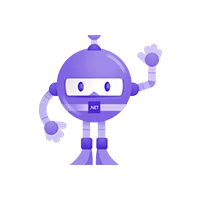 .NET MAUI Development
.NET MAUI Development
 Xamarin Application Development
Xamarin Application Development
 React Native App Development
React Native App Development
 iOS Application Development
iOS Application Development
 Android Application Development
Android Application Development
 Android Wear App Development
Android Wear App Development
 Ionic Development
Ionic Development
 iBeacon Application Development
iBeacon Application Development
 Universal Windows Platform (UWP)
Universal Windows Platform (UWP)
 Kotlin Application Development
Kotlin Application Development
 Swift Application Development
Swift Application Development
 Flutter Application Development
Flutter Application Development
 PWA Application Development
PWA Application Development
 Offshore Software Development
Offshore Software Development
 Custom Application Development
Custom Application Development
 Front-End Development
Front-End Development
 Full Stack Development
Full Stack Development
 AI & Machine Learning
AI & Machine Learning
 Custom CRM Solutions
Custom CRM Solutions
 Flask Software Development
Flask Software Development
 Electron JS Development
Electron JS Development
 ChatGPT Development
ChatGPT Development
Telemedicine App Development
Build Smart Telemedicine Platform
Beauty & Salon App Solutions
Hire Workato Experts
Workato Consulting & Support
 .NET Application Development
.NET Application Development
 .NET Nuke Development
.NET Nuke Development
 Microsoft Dynamics CRM
Microsoft Dynamics CRM
 Microsoft Small Business Solution
Microsoft Small Business Solution
 VB .NET Development
VB .NET Development
 C# Development
C# Development
 Sharepoint Migration
Sharepoint Migration
 Sharepoint Development
Sharepoint Development
 ASP.NET Core Development
ASP.NET Core Development
 ASP.NET Development
ASP.NET Development
 ASP.NET MVC Development
ASP.NET MVC Development
 Kentico CMS
Kentico CMS
 Umbraco CMS
Umbraco CMS
 AJAX Development
AJAX Development
 Agile Development
Agile Development
 Microsoft Bot
Microsoft Bot
 Microsoft Blazor
Microsoft Blazor
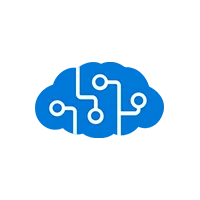 Microsoft Azure Cognitive
Microsoft Azure Cognitive

 Mean Stack Development
Mean Stack Development
 Vue JS Development
Vue JS Development
 Javascript Development
Javascript Development
 Angular JS Development
Angular JS Development
 Next JS development
Next JS development
 Java Development
Java Development
 Python Development
Python Development
 Django Development
Django Development
 Cherrypy Development
Cherrypy Development
 NodeJS Development
NodeJS Development
 Laravel Development
Laravel Development
 CodeIgniter Development
CodeIgniter Development
 Zend Development
Zend Development
 Ruby on Rails Development
Ruby on Rails Development
 CakePHP Development
CakePHP Development
 PHP Website Development
PHP Website Development
 Symfony Development
Symfony Development
 Drupal Development
Drupal Development
 Joomla Development
Joomla Development
 Wordpress Development
Wordpress Development
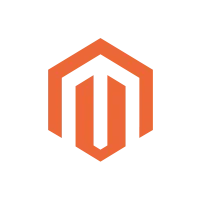 Magento Development
Magento Development
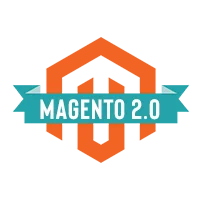 Magento 2.0 Development
Magento 2.0 Development
 Magento Enterprise
Magento Enterprise
 Shopping Cart Development
Shopping Cart Development
 Prestashop Development
Prestashop Development
 Shopify Development
Shopify Development
 Open Cart Development
Open Cart Development
 WooCommerce Development
WooCommerce Development
 BigCommerce Development
BigCommerce Development
 NopCommerce Development
NopCommerce Development
 Virto Commerce Development
Virto Commerce Development
 AspDotNetStorefront Development
AspDotNetStorefront Development
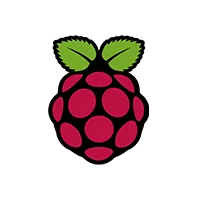 RaspBerry Pi
RaspBerry Pi
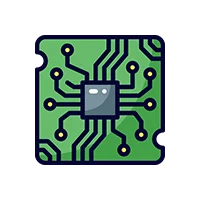 Firmware Software Development
Firmware Software Development
 ESP 32 Software Development
ESP 32 Software Development
 Embedded Development
Embedded Development
 Internet of Things
Internet of Things
 Nordic Development
Nordic Development
 HTML 5
HTML 5
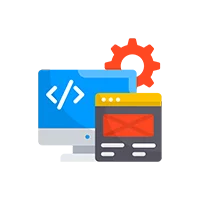 UI/UX Design
UI/UX Design
 Graphic Design
Graphic Design
 Adobe Photoshop
Adobe Photoshop
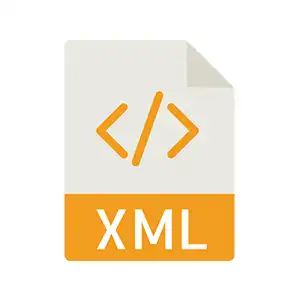 XML Application Development
XML Application Development
 Cloud Computing Solutions
Cloud Computing Solutions
 Azure Cloud App Development
Azure Cloud App Development
 AWS Development
AWS Development
 Google Cloud Development
Google Cloud Development
 SQL Programming Development
SQL Programming Development
 MySQL Development
MySQL Development
 MongoDB Development
MongoDB Development
 Big Data
Big Data
 Robotic Process Automation
Robotic Process Automation
 Social Media Marketing
Social Media Marketing
 Search Engine Optimization
Search Engine Optimization
 QA Testing
QA Testing
 Software Testing
Software Testing
 Software Security
Software Security
 Maintenance And Support
Maintenance And Support
 I.T. Consulting Services
I.T. Consulting Services
 Business Intelligence
Business Intelligence
 YII Development
YII Development
 Data Analysis
Data Analysis
 Alexa Skills Development
Alexa Skills Development
 On Demand App for Mobile repairing services
On Demand App for Mobile repairing services
 On Demand App for Car Service Booking
On Demand App for Car Service Booking
 On Demand App for Cleaning Services
On Demand App for Cleaning Services
 On Demand App for Pharmacy
On Demand App for Pharmacy
 On Demand Dedicated Developers
On Demand Dedicated Developers

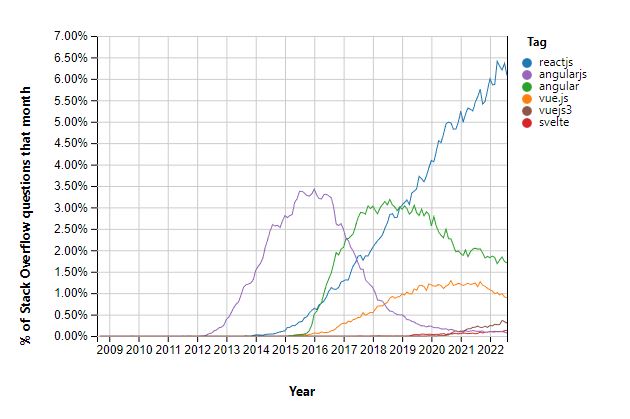





Leave a Reply